A partial list, forever in progress (every week I learn about new stuff)!(This Election Week post grew out of queries from colleagues as well as virtual teach-ins at CSU Northridge. It is very much a quick, tentative dispatch!) Below is a bunch of notes, roughly organized, about comics (especially graphic novels) that engage urgent social issues such as voting, migrant and refugee experience, racism, police violence, political activism, gender, feminism, and LGBTQ+ activism. Note that not all of these books are designated as children's or young adult books, and many contain frankly adult content. OTOH, there are some excellent young reader's books here. Besides long-form comics like graphic novels, other, shorter comics may engage such issues too, webcomics in particular. Webcomics are typically free and often address vital issues briefly and powerfully; e.g., consider the many affecting comics about living under COVID (see especially the series “In/Vulnerable,” on thenib.com, researched by reporters for The Center for Investigative Reporting and drawn by Thi Bui: https://thenib.com/in-vulnerable/). The Movement for Black Lives and the Black Comics Explosion 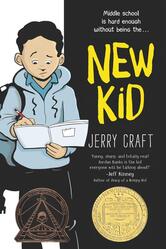 March, by the late John Lewis, with collaborators Andrew Aydin and Nate Powell — a memoir trilogy about Lewis’s participation in the Civil Rights Movement. One of the most acclaimed of recent American comics, and highly recommended. “Your Black Friend,” by Ben Passmore, a short satirical comic found in his book Your Black Friend and Other Strangers. Also, see Passmore’s collaboration with Ezra Claytan Daniels, BTTM FDRS, an urban horror story and satire about gentrification—it’s gross and very good! (I’d check out anything by Passmore, though he may not appeal to everyone, and some of his more underground-like work is a mixed bag. He has a new graphic novel called Sports Is Hell that I haven’t read yet. Be sure to look for Passmore’s online comics, especially on The Nib. He often engages issues of police violence and critically engages the BLM movement.) Damian Duffy and John Jennings adapted Octavia Butler’s classic novel Kindred into a graphic novel: a heartfelt piece of work about time-traveling back into the era of slavery. They have recently adapted another of Butler’s novels, Parable of the Sower, but I haven’t read it yet. Speaking of Jennings, he and fellow artist Stacey Robinson together drew the graphic novel I Am Alphonso Jones, written by Tony Medina—the story of a young Black man killed by police. This is often categorized as YA. Hot Comb, by Ebony Flowers, combines memoir and fiction: a series of short, intimate stories, many exploring the consequences of racist beauty standards for Black women. Understated, powerful. Sometimes also categorized as YA. See Jerry Craft’s New Kid for a funny, insightful middle-grade GN about being a scholarship kid of color in a tony private school. (Craft has a new book, Class Act, that I haven’t read yet.) Bitter Root, by Chuck Brown, David Walker, and Sanford Greene, is an ongoing comic book series that filters period pulp action through African American historical and cultural lenses. There are two collected volumes so far. It’s overtly political even as it dishes out monster-smashing action: an Ethno-Gothic, steampunk, antiracist adventure. Cool. (Not understated!) Great African American SF/fantasy novelists like Nalo Hopkinson, Nnedi Okorafor, and N.K. Jemisin have been writing superhero comic book serials lately. Jemisin is about 2/3 of the way through a Green Lantern series with many topical elements titled Far Sector, drawn by Jamal Campbell. It concerns race and the challenge of living in a pluralistic society (a faraway world inhabited by billions of beings of several different species). Smart, rich work. Immigrant and Refugee Experience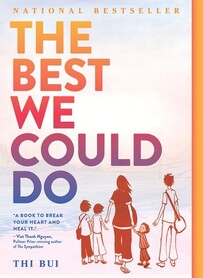 Alberto Ledesma shares reflections from his life as an undocumented immigrant in Diary of a Reluctant Dreamer, a very personal scrapbook of sorts that grew out of a series of Facebook posts. Eye-opening for me, and poignant. Besides superheroes, Nnedi Okorafor has written a SF comic called LaGuardia that deals with immigration and nativist backlash—but on a planetary level! It’s drawn by Tana Ford. Escaping Wars and Waves, by graphic journalist Olivier Kugler, depicts Syrian refugees living in refugee camps, and is excellent. Border: A Crisis in Graphic Detail, edited by Mauricio Alberto Cordero, is a recent comics anthology about migrant experience at the US’s southern border, and a fundraiser for the South Texas Human Rights Center. Powerful stories and testimony. The Scar, by Andrea Ferraris and Renato Chiocca, is a brief but powerful treatment of the US/Mexico border. Migrant: Stories of Hope and Resilience, written by Jeffry Korgan and illustrated by Kevin Pyle, recounts personal stories of crossing the US border (I haven’t had a chance to read it yet). Thi Bui’s graphic memoir, The Best We Could Do, about five generations in the life of a Vietnamese American family, is brilliant, a great book. (Matt Huynh’s webcomic Cabramatta resonates with this: http://believermag.com/cabramatta/. So does GB Tran's book Vietnamerica.) The recent YA graphic memoir by Robin Ha, Almost American Girl, depicts a Korean American experience that perhaps invites comparison. There are quite a few graphic memoirs about the experience of immigrants’ children—see, e.g., I Was Their American Dream, by Malaka Gharib. They Called Us Enemy, by George Takei, Justin Eisinger, Steven Scott, and Harmony Becker, is an autobiographical account of the incarceration of Japanese Americans during WW2. Much to learn here. Immigration policy is discussed in Open Borders: The Science and Ethics of Immigration, by Bryan Caplan and Zack Weinersmith, though I haven’t gotten to read it yet. It’s a didactic graphic book: less story than argument. But there are many great comics like that! Comics on the Political ProcessUnfit: How to Fix Our Broken Democracy, by Daniel Newman and George O’Connor—though I’m afraid I haven’t read this yet. Drawing the Vote: An Illustrated Guide to Voting in America, by Tommy Jenkins and Kati Lacker. Comics about Indigenous LivesFor comics by Indigenous creators, see for example the anthology Moonshot, and check out publisher Native Realities: https://redplanetbooksncomics.com/collections/native-realities. In particular, the collaborations of artist Weshoyot Alvitre and writer Lee Francis IV (e.g., Sixkiller; Ghost River: The Fall and Rise of the Conestoga) have captured my attention. Look also for the anthology Deer Woman, co-edited by Alvitre and Elizabeth LaPensée. A recent scholarly collection, Graphic Indigeneity, ed. Aldama, will help here. Celebrated comics journalist Joe Sacco (who produces one stunning book after another) has just recently published Paying the Land, a book about resource extraction and energy politics, but most particularly the history of an Indigenous Canadian people, the Dene. I’ve read only the opening chapter so far (which is remarkable) but the book looks ambitious and informative. Know that Sacco is not an Indigenous author (he is Maltese-American), and scholar colleagues versed in this area have shared some eye-opening critical points with me; still, Paying the Land will surely be worth your time. Gender and Sexuality (Feminist, Queer, and Trans Perspectives)Drawing Power, edited by Diane Noomin, is a stunning anthology of stories about sexual violence, harassment, and survival. Strong, stinging, varied work there, sometimes harrrowing—a response to #MeToo. Maia Kobabe’s nonbinary memoir, Gender Queer, is tender and revelatory. You could call it a YA book, though of course its reception in YA circles has been fraught. (It's a frank depiction of, among other things, gender expression and sexual exploration — so, well, let's just say that some Amazon customers disapprove.) Look for the LGBTQIA anthology Love Is Love, a 2017 benefit to help victims of the Orlando nightclub shooting—short comics, but often powerful, and varied in approach. Justin Hall’s No Straight Lines: Four Decades of Queer Comics is essential history. Edie Fake's Gaylord Phoenix is a mind-altering, phantasmagorical quest fantasy from a trans perspective: a mostly wordless transition fable that rewrote the way I think about comics! Highly recommended. (Be aware: this is not tagged as a young reader's book, and includes startling images of violence and self-harm as well as sexual abandon.) Disability, Graphic Medicine, and CareCheck out the graphic medicine movement, devoted to comics treatment of illness, wellness, and dis/ability: see https://www.graphicmedicine.org. Note also the prevalence of disability memoirs in comics that are not medical in focus, e.g. Cece Bell’s great children’s comic, El Deafo; or the very recent (fictionalized) YA book, The Dark Matter of Mona Starr, by Laura Lee Gulledge, about depression; or any number of webcomics about life on the autism spectrum. Kabi Nagata’s manga My Lesbian Experience with Loneliness concerns not only sexuality but also anxiety and depression. Allie Brosh’s work also addresses depression and anxiety (Hyperbole and a Half; Solutions and Other Problems). Katie Greene’s Lighter Than My Shadow depicts her life with anorexia and an eating disorder. I highly recommend Vivian Chong and Georgia Webber's collaborative memoir, Dancing after TEN, which recounts a life-changing medical crisis for Chong that robbed her of sight; as well as Webber's own solo book about literally losing her voice, Dumb. Re: aging and elder care, see such graphic memoirs as Roz Chast’s Can't We Talk about Something More Pleasant? and Joyce Farmer’s Special Exits. Just a random recommendationFor depiction of progressive activism in a near-future dystopia, basically just a few steps from our own, read The Hard Tomorrow, by Eleanor Davis. This one rattled me, and it's beautiful. One last note (preaching to the choir?)As many KinderComics readers may know, children’s and young adult graphic novels are the fastest-growing, most robust sector of comics publishing in the US. They often deal with complex immigrant or minority experience, and offer queer-positive portrayals as well. Check out anything by Mariko Tamaki, Jillian Tamaki, Jen Wang, or Tillie Walden. This publishing movement is really doing bold new things in queer representation and identity narrative.
0 Comments
|
Archives
June 2024
|

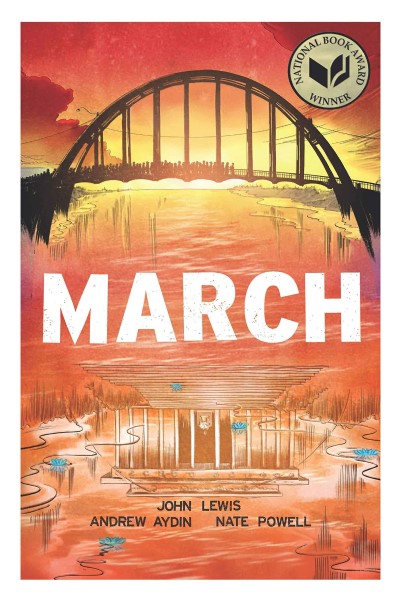
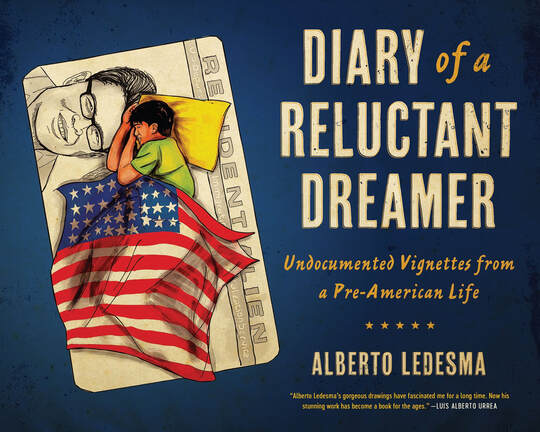
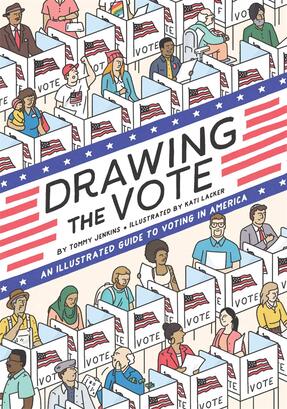
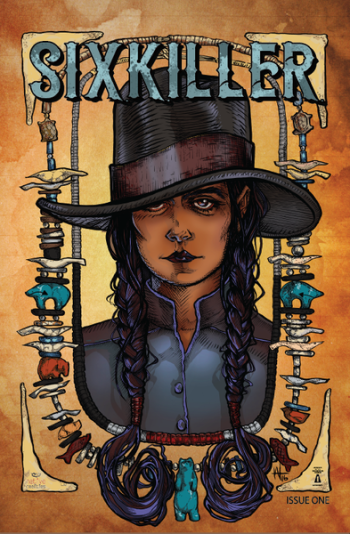
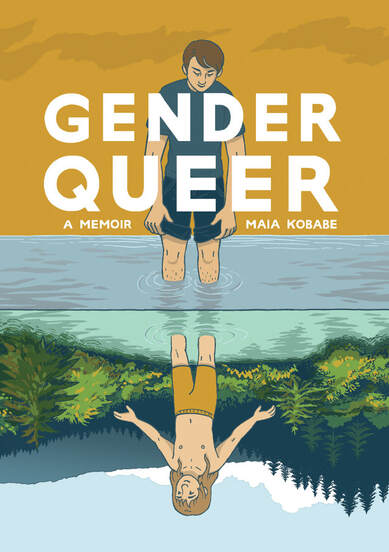
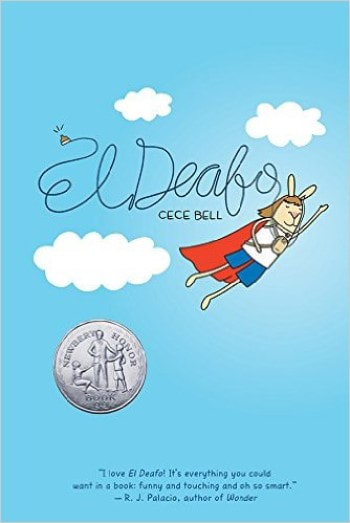
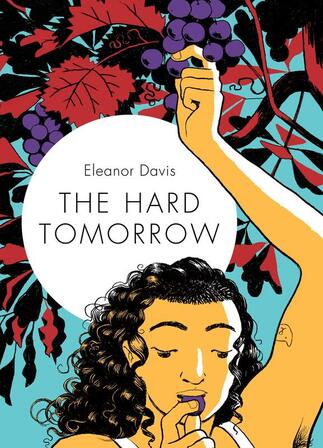
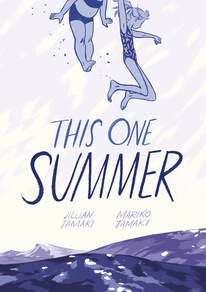
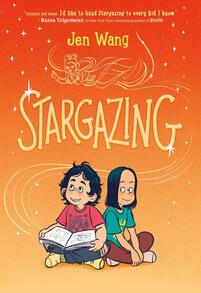
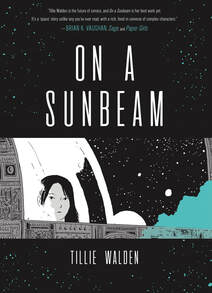
 RSS Feed
RSS Feed
